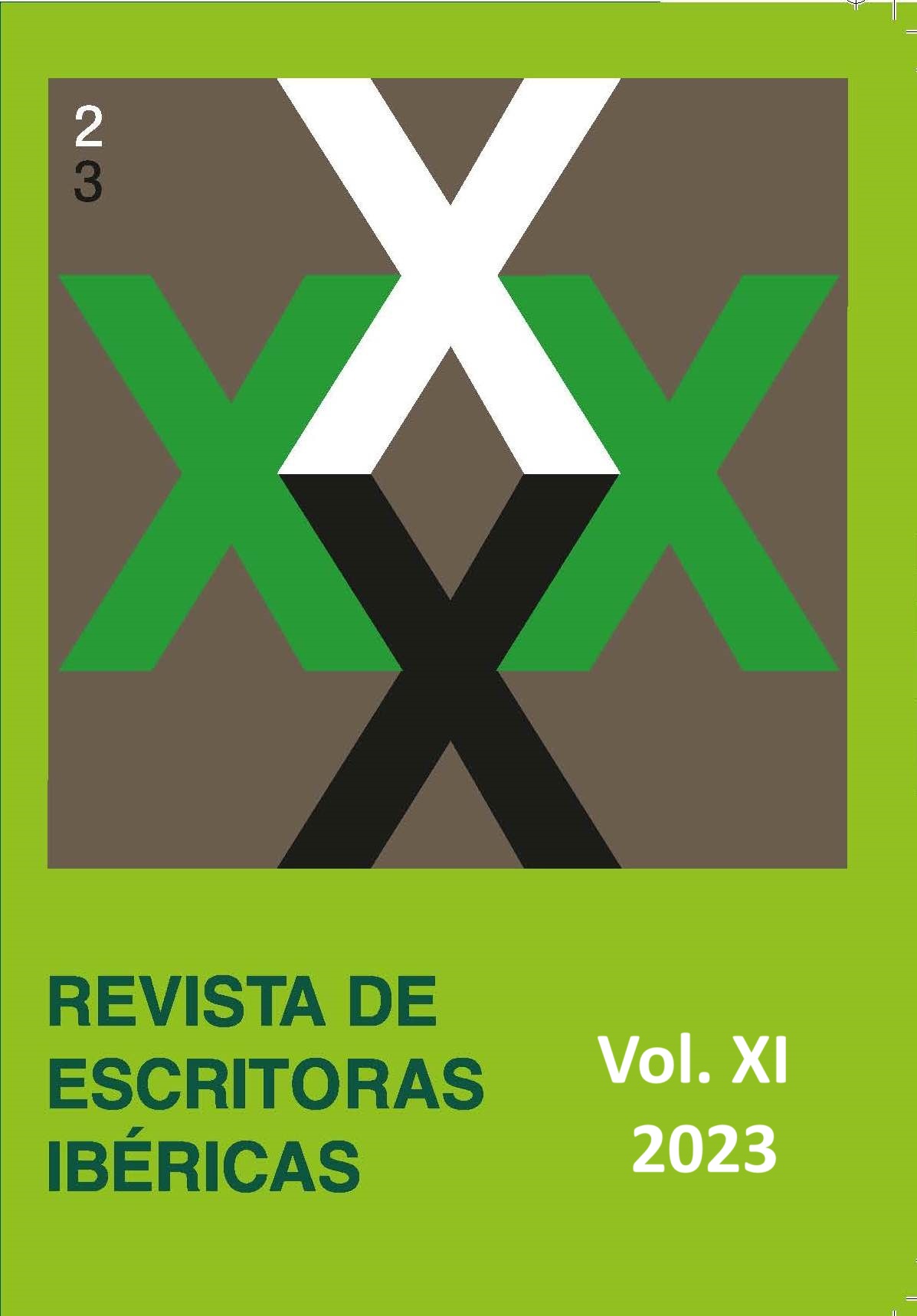El motivo de la soledad en la trayectoria poética de Concha Lagos: La soledad de siempre (1958), Tema fundamental (1961), El cerco (1971) y Teoría de la inseguridad (1981)
La soledad de siempre (1958), Tema fundamental (1961), El cerco (1971) y Teoría de la inseguridad (1981)
DOI:
https://doi.org/10.5944/rei.vol.11.2023.32806Palabras clave:
Poesía femenina, poesía comprometida, Cuadernos de Ágora, existencialismo., Concha LagosResumen
La poeta Concha Lagos se inscribió en el panorama cultural con especial soltura sobre todo a través de la dirección de la revista Cuadernos de Ágora desde 1956 hasta 1964; la fundación de la colección Ágora de poesía en 1955 y del premio Ágora de poesía en 1962. Concepción Gutiérrez Torrero (1907-2007) nació en Córdoba y murió en una residencia de ancianos en Las Rozas de Madrid. Logró abrirse un hueco en la industria cultural de la capital que estaba comenzado a despuntar muy lentamente en los años de autarquía. La madurez adquirida a raíz de una vida de incomodidades y renuncias había llevado a Concha Lagos a convertirse en una mujer con el potencial suficiente para convertirse en un agente cultural fundamental del medio siglo en España. En su poesía, que comenzó a ver la luz editorial a partir de 1954, a pesar de que la escritura de ese primer libro, Balcón, hubiese comenzado mucho antes, se plasmarían durante las décadas subsiguientes todas las preocupaciones de un universo para entonces ya muy personal. En el presente trabajo emplearemos las recientemente editadas memorias de Concha Lagos para extraer pasajes críticos en torno al sentimiento de soledad que, como ella misma plantea, es una constante en su trayectoria poética. Efectivamente, todos los ejes fundamentales de la poética de Lagos se orquestan en torno al motivo de la soledad de una manera u otra. Plantearemos entonces los diferentes tipos de soledad que pueden deducirse del texto autobiográfico y trataremos de identificarlos también en las obras poéticas objeto de comentario. El objetivo fundamental es desentrañar cómo ese sentimiento fue polisémico para la poeta y cómo es, en efecto, resemantizado a lo largo de su trabajo poético para alcanzar una conclusión alineada con planteamientos filosóficos de existencialismo vitalista.
Descargas
Descargas
Publicado
Cómo citar
Número
Sección
Licencia
Derechos de autor 2023 Maria Eugenia Alava Carrascal

Esta obra está bajo una licencia internacional Creative Commons Atribución-NoComercial 4.0.
Los autores que publican en esta revista están de acuerdo con los siguientes términos:
Los autores conservan los derechos de autor y garantizan a la revista el derecho de ser la primera publicación del trabajo.
La revista Revista de Escritoras Ibéricas se publica bajo licencia Creative Commons Reconocimiento – NoComercial (CC BY-NC). Las opiniones y contenidos de los artículos publicados la Revista de Escritoras Ibéricas son de responsabilidad exclusiva de los autores y no comprometen la opinión y política científica de la revista. También serán responsables de proporcionar copias de los datos en bruto, puntuaciones, y, en general, material experimental relevante a los lectores interesados.
Los autores pueden establecer por separado acuerdos adicionales para la distribución no exclusiva de la versión de la obra publicada en la revista (por ejemplo, situarlo en un repositorio institucional o publicarlo en un libro), con un reconocimiento de su publicación inicial en esta revista.Se permite y se anima a los autores a difundir sus trabajos electrónicamente (por ejemplo, en repositorios institucionales o en su propio sitio web) antes y durante el proceso de envío, ya que puede dar lugar a intercambios productivos, así como a una citación más temprana y mayor de los trabajos publicados (Véase The Effect of Open Access) (en inglés).








